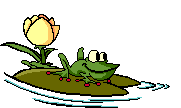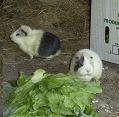 |
Bungala Ridge Permaculture Gardens REDUCE ... REUSE ... RECYCLE ... REPAIR ... RETURN ... REVEGETATE ... REPLENISH |
||||||||
|
|||||||||
|
|
Living Simply It's difficult to believe that with all the education and technology available humanity can't solve the serious problems we face each day... We can. We have the basic materials, labor, technology, intelligence, and imagination to solve the problems. So why don't we? All too often people are overwhelmed by the enormity of the task. Permaculture offers a practical and successful pathway to effective change at the personal and community level. If enough people began to live according to permaculture ethics and principles the ripples of change would begin to make a difference globally. Since 1986 my goal has been to live simply. What do I mean by "living simply"? It is the search for an ecologically sane lifestyle that takes responsibility for every aspect of how I live - what I eat, the building I live in, how I get around, my relationship with other people, the creatures and plants of the Earth, the planet, what I use, my health and safety and that of others. It's about questioning the cultural imperatives for my actions: is what I'm are doing driven by my cultural background or rooted in sane, appropriate technology and ethical economic reason? To live simply I find every decision I make must be examined on this level to determine whether it reflects my basic needs and desires. In order to do this I need must know my basic needs; I need to know my personal wants. I need to know myself - who I am, what I want, what I need to survive and feel fulfilled. I need to consider myself in the same way that I consider any other element in a permaculture system. Natural implies sustaining a balance between the needs of the part and the needs of the whole. Understanding the difference between needs and wants affects my decision making processes. Keeping this balance between the part and the whole to obtain an holistic view is important when seeking solutions. I find that by limiting the scale and intensity of my activities to that which is actually necessary and no more guides me to a simple life. This implies a thorough understanding of the "needs" and "wants" of the various elements at play in any given situation and a decision making process balanced by an holistic perspective, with consideration given to the present and future consequences of my actions. I need to constantly seek and implement solutions that reduce the disturbance to the ecological balance. Often "do nothing" is the perfect solution, and a close examination of "needs" reveals cleverly disguised "wants" that have no permanent value or don't reflect the inner me, but serve a cultural imperative. Permaculture reminds me that all tools must be matched to the task at hand. I aim aim for bare sufficiency as it produces optimal growth; whereas deficiency is stunting and excess imbalances systems. I recognise that each dollar I spend is a vote for the way I want others to shape the world. This means that we can reclaim how we shape the world by spending our dollars ethically and wisely, or by not spending/earning them at all. Spending less reduces resource use and the need to earn. I'm always on the lookout for the cheapest solutions - they are usually the most cost effective and offer the best quality of life. Many times I walk away from a purchase, realising that I already have enough resources at home to create whatever it is I needed or wanted. Wherever possible I focus on creative recycling and using on site materials and materials. This reduces the need for purchasing off site anything I need. In many instances this means changing my expectations, especially of comfort, and also my perceptions of longevity - regarding belongings and structures. I aim to foster a desire to live more closely to the elements and build health through vigorous and ecologically appropriate activity. I'm lucky to share a small parcel of land with four wonderful other people. We all believe it's important to protect the continuing bio-diverse resource it represents and to develop it so that it supports our present and future needs and to share our bounty with others. Another important aspect of living simply is the need to keep business endeavors small and within scale. Businesses should work for us, not against us or our needs and wants. It's too easy to carried away and suddenly finding that we don't have time to relax and enjoy this wonderful planet. I find that if I don't make time each day to enjoy life I quickly lose the will to live simply and fall into old consumeristic patterns of behaviour. Enjoying life for me means spending some time outside - gardening, walking, working. I also like to simply sit and allow my senses & thoughts to rest gently upon some natural object or scene and gently meditate or daydream. Spending time each day in physical contact with the Earth keeps me sane. Staying mindful of what I'm doing and why is another important aspect of living simply. The connections and relationships I create need to involve a sensible and efficient use of resources and to minimise damage to the environment and community I live in. Being attentive and mindful is the surest path to a simple, sustainable and meaningfully fulfilling life. Giving thanks many times a day for the wonderful life I life - celebrating each and every moment, regardless of what each moment brings - is another way of keeping my awareness on living simply. It's important for me to do those things that I truly believe in and feel passionate about - this makes living worthwhile. Making sure my activities always promote bio-diversity and ecological balance requires constant vigilance. All solutions need to employ the least possible energy expenditure. I am reminded through permaculture that I need to make better use of the energies and resources entering our property, especially the natural ones; eg water, sunlight.
|
Hot Links!
This site is sponsored by
|
|||||||
|
|
|
|
|||||||




